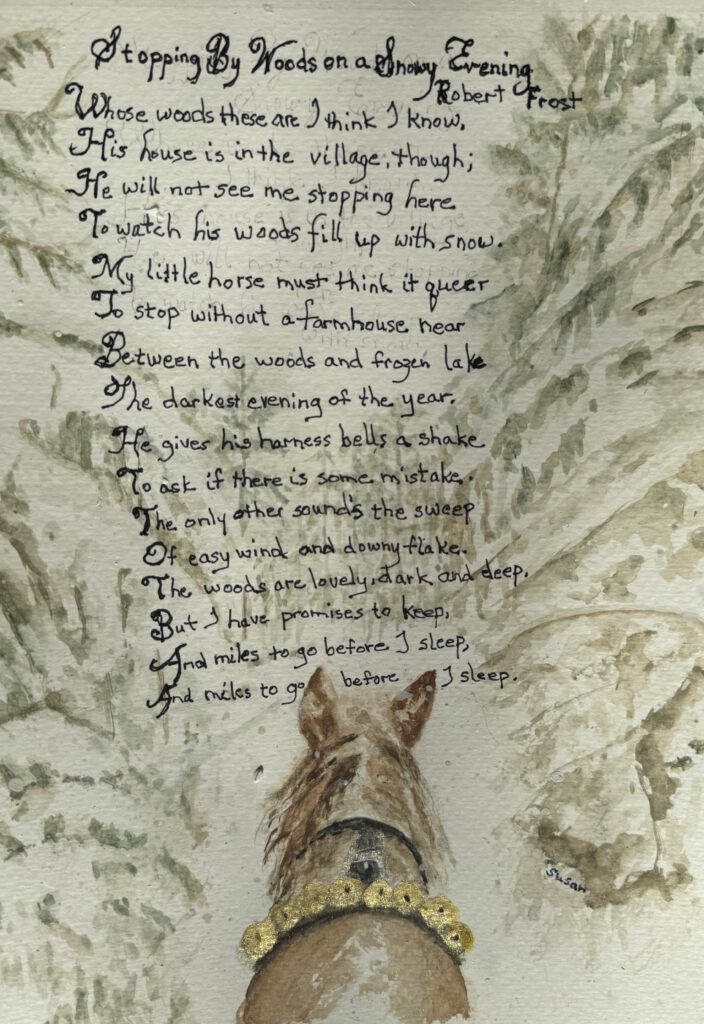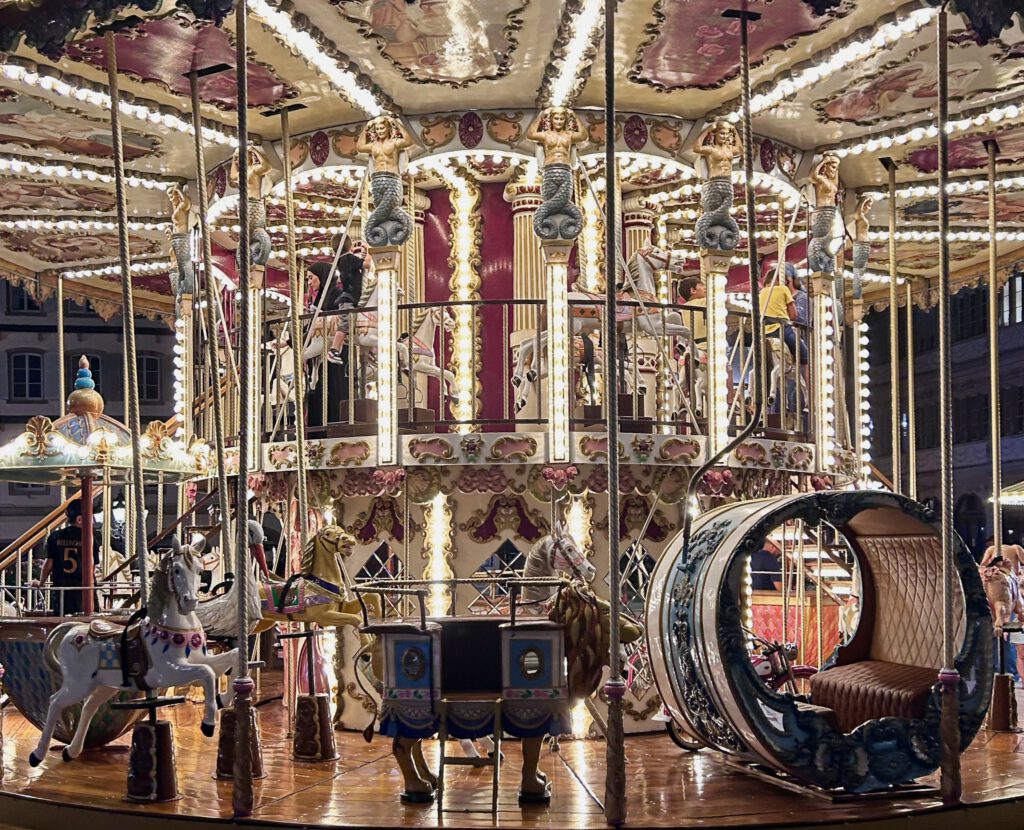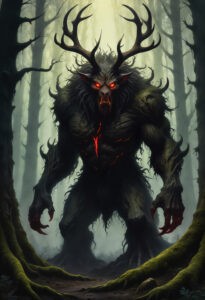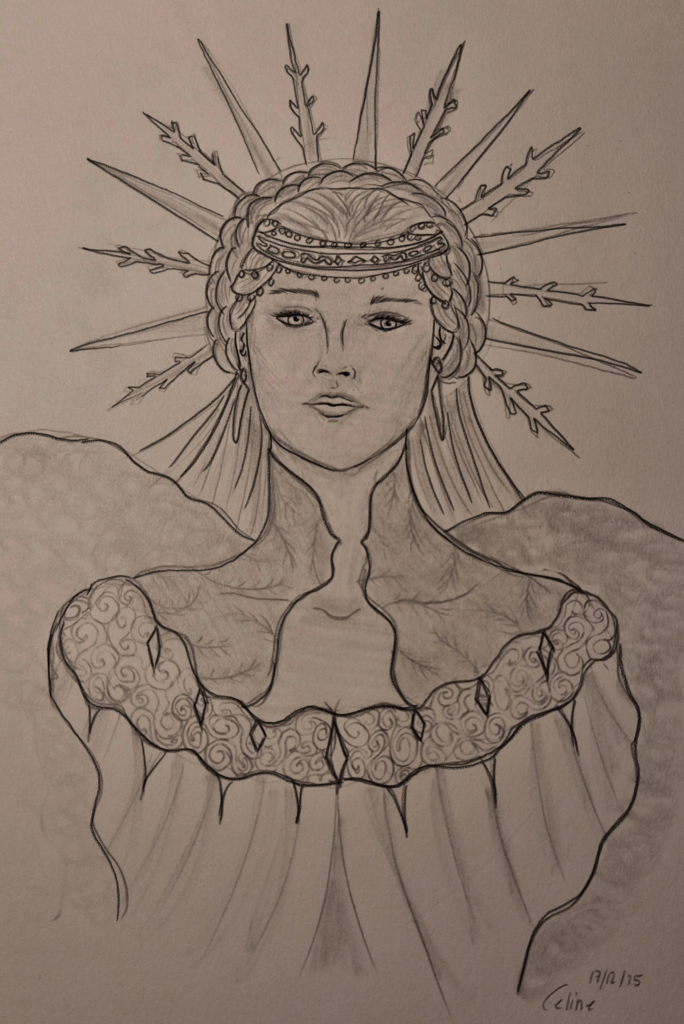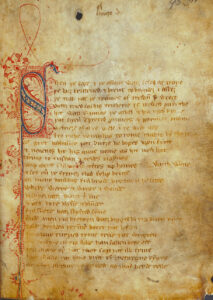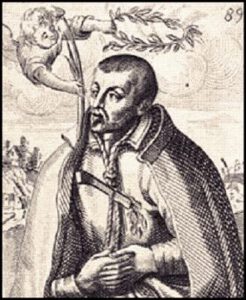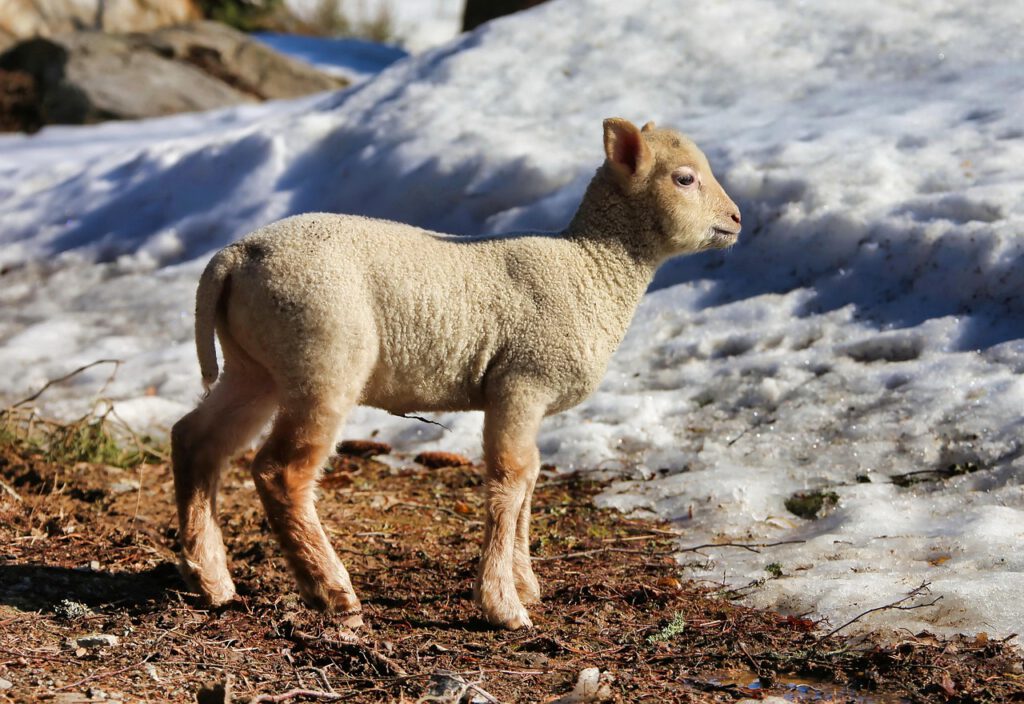My Career Goes Bung: Genre−Parody, Australianness and Anglophilia
Sanjay Sircar
Published in Connotations Vol. 8.2 (1998/99)
Miles Franklin (1879−1954) entered the Australian canon with her first novel, the realist, nationalist, feminist−"revisioning," autobiographically−based first−person My Brilliant Career (Career; 1901, filmed 1979). She followed it with neglected experimental metafictive novels whose heroines are also authorial personae with the same name, Sybylla, but are not the same character. The first is My Career Goes Bung (Bung; c. 1902−1904, revised c. 1935, published 1946, sets of draft mss. extant). Sybylla II tells how she wrote an imitative draft of a novel set in England, and was advised by her schoolmaster Old Harris to draw on her own setting and experience. Her reconceived nameless first−person novel (identifiable as Career) was published in England; she was lauded and reviled, and invited by rich Mrs Crasterton to Sydney. She rejected the job of newspaper society columnist there, and has returned home to the bush, where she is now writing Bung, her actual autobiography, and planning to go to England to write there.
Bung has been seen as weak authorial self−plagiarism, "not much more than an echo" (Green [1961] 1984, 694) and also as "more an autobiography, and less of an autobiographical fiction" than Career (Perosa 1985, 20, 28). All Franklin's novels lend themselves to roman−à−clef readings, but more importantly Bung, a fiction about writing fiction, is both a deflationary parody of Career (both are about a trip away from the poor bush, a disappointed return, no marriage) and a genre−parody of cheap English serialised formula fiction, the Penny Post novel. The Post novel is at the heart of Sybylla II's Künstlerroman growth out of her naïve belief in cheap fiction as a literary model, of the self−directed irony of her Bildungsroman growth out of her romantomaniac belief that such fiction validly mirrors the world, and of her social satire. But in ways she does not recognize, [→page 176] the formulaic Post novel does correspond to Sybylla II's own stylised narrative world, partially and ironically, and has a bearing on her expatriate aspirations.
The Penny Post novel: a bad literary model, a good prototype for parody
Franklin says in her 1946 preface to Bung that at about thirteen, the "enchanting," "trashy novelettes reprinted in the Supplement to the Goulburn Evening Penny Post," read secretly, inspired her "imitative lucubrations" of these "romances." Her friends enjoyed them, but "an Englishman" directed her to "the Australian scene as the natural setting for [her] literary efforts" and she wrote Career (5). Ironically enough, this Englishman appears to have been Thomas J. Hebblewhite, the Post's editor. Franklin directly mentions the Post novel as the foreign model rejected for Career's authentic Australian, but Sybylla II covertly insinuates the Post novel into her account, in two widely separated sections.
Bung first recounts the mentor's advice, then indicates what was imitated after a long gap. Sybylla II, a "voracious reader" (30), leaves school and sets out to write a first−person work to "burlesque autobiography," mock virtuous people, "liberate" the words caged in her, "crystallize rebellion" and express her "longing to escape" the Australian bush. Her draft starts "in an ancient castle on an English moor," but is not a historical novel because she is uncertain about the generic diction of "Odds fish, ma'am" and "Gad Zooms" (34). But her schoolmaster, Old Harris, asks her, "Why do you write about a castle in England that you have never seen?," answering that "imagination makes [the castle] more enthralling than things near at hand. Why not try reality? . . . Well, instead of the roses on that castle wall, why not this fragrant bower of wattle? Instead of the wind moaning across the moor, why not the pitiless sun beating down on the cracked dusty earth?" "It is the highest form of culture and craftsmanship in art to use local materials," to add to rather than "merely imitate" culture, for "imitation is a form of flattery to the imitated, [but] a form of weakness or snobbery in the perpetrator."
[→page 177] Old Harris "expands" Sybylla II's horizons, but unremarked by either, her presentation of the Australian wattle and baked paddocks which are familiar, tame and ugly to her, is still driven by England. An expatriate Englishman, about to leave permanently for England, recommends depiction of a "real" Australian setting and experience rather than imaginary English ones, because "Australia is crying out to be done: England is done to death"—for English readers, who are as familiar with the castle and the slum street as she is with the bush, and will find the bush new and informative.
There is a further contradiction between Old Harris's advice to depict a directly known Australian milieu rather than a foreign one imagined at second−hand, and his advice on depicting imagined fictional characters in that milieu. He says that Sybylla II can "picture" "everyone in the Australian bush" with "refreshing" "vigor and conviction," can "draw portraits of all the characters that furnish [her] life," but also that if she portrays imaginary character−types, as she suggests, they "may be more real that way." Correspondingly, he suggests that Sybylla II "project [herself] upon the canvas," but accepts her wish to depict a fiery fictional heroine, not her own docile, modest self. So she plasters his ideas onto the original burlesque autobiography, depicts the imaginary hot−tempered "girl of [her] admiration" and characters "created in the image of reality" (34−36).
Nevertheless, Sybylla II's Ma cannot "see that an interesting book could be made of [bush] reality" (36). National, then rural⁄urban, economic and class inflexions enter Sybylla II's sense of this "reality [which] would look mighty queer in a book, something like a swaggie at a Government House party" (39). But Sybylla II's Australian novel is published to the avid horror of the neighbours, who find it either not real enough or too real for comfort. "[H]itherto [their] only reading had been the Penny Post"—the first, apparently casual reference to it—"and the Bible or a circular from Tattersall's [sweepstakes]" (62).
So Sybylla II blames Old Harris adjuring her "to be Australian and add to culture. CULTURE!," and regrets her "foolish notion of showing how comical the 'Possum Gully sort of reality would look by comparison" with her original project of "lords and ladies in England and a beautiful heroine [→page 178] who went through tophet to give the hero a chance to show−off as a deferred rescuer … :
[If] I had had the villain scrunching the gravel, and a jealous rival beauty biting her lips till the blood came and breaking the stem of a champagne glass between her jewelled fingers with rage (though I had not yet seen a champagne glass) I should have been acclaimed. My tale might have adorned the Supplement to the Goulburn Evening Penny Post. I love the tales in the Penny Post, full of mystery and glamour and castles and lords and gorgeous lovers. (75)
Only now, retrospectively, is it clear that the draft's English rose−decked castle on the windy moor, with pasteboard aristocrats in a hackneyed love−plot, were derived from Sybylla II's reading of Post novels; thus that rejecting them for Australian wattle, paddocks, imaginary heroine and imagined bush types is both a colonial rejection of a colonizing imagined English reality and of a certain sort of English literary model. The point is that though Sybylla II has shocked Australians, worthwhile literary works are made in reaction to previous ones; that to be Australian, fresh, directly observed, and newly imagined is to be not−English, to abjure an English model, to be about an Australian bush setting and a different rural class experience. Bung establishes the value, originality and shocking realism of such Australian writing, reviled and praised for its truth to life by assertion (Franklin 6; Pa 57; SII 37, 62, 75, 109; Henry Beauchamp 83; Old Harris 92; others 62−63, 74, 107, 109) and by contrast with the formulaic English newspaper serial, a straw genre set up to be knocked down.
But Sybylla II's autobiography covertly, more self−consciously, returns to something like her draft and its hackneyed English model, now in conscious, critical comic literary parody of the Post novel and its ridiculous untruth to life. For even after her novel's success, during her time in Sydney Sybylla II naïvely continued to believe in the real existence and worth of the milieu, life, and characters of the Post novel; longed to experience it and mentally use its diction. Sadder and wiser, the narrating Sybylla II now uses Post imagery and diction with "transfer of sympathy" (see Romberg, 1962), with the naïve mindset, admiring wonder and the Post cliché−words which the narrated Sybylla II would have indulged in. But they function as retrospective signals of self−directed irony at a past self, [→page 179] and of social satire at the false Australian people and their Anglophile class− and culture−related public personae which incarnate the Post novel and hence partake of its pasteboard worthlessness. The negative values of the parody, irony and satire inflect each other.
In 1946 Franklin denies doing anything other than omitting passages from her manuscript of the 1900s, author and narrator both refer to the "Supplement" to the Post (5, 75), but the narratorial reference may have been a late addition, for there seems to have been no such supplement. The serialised reprints of anonymous English work (by the same hand?), in the Post itself are melodramatic Sensation Novels, of the school which flourished between 1860 and 1880, most set in High Society, all replete with motifs of insanity, imposture, mystery, murder, forgery, bigamy, arson, incarceration, and railway accidents. Where Franklin's late preface has them "prinked" with more Gothic Novel−like "castles with ivied towers and hooting owls, . . . inhabited by the [Montoni−like] unaccommodating guardians, thrilling seducers and more thrilling rescuers of titled maidens, as pure as angels" (Preface 5), Sybylla II's modern champagne glass and gravel (and no unaccommodating guardian), gives a more accurate impression.
However, the images and diction Bung associates with the Post novel are not specifically taken from the particular conventions of the Gothic Novel, the Sensation Novel, or any one or any set of the actual novels which the Post serialised between 1890 and 1900 (though Career itself does indeed sometimes directly echo and ironically modify their motifs). Instead, Bung uses the Post novel as a name to ground a generalized composite image of any cheap formulaic English High Society romance, novelette or novel (Franklin's preface uses all three words). Sybylla II was "in a quandary about style" when she started her draft (34), and the internally caged words she liberated in it must have been the fancy words of the Post novel. She now writes her autobiography in a plain, sometimes very colloquial style, in which jarringly obtrusive imitation−Post passages, embedded like separable nuggets, focus on trite images of the fancy expensive things of rich, aristocratic Anglophile life in stilted clichéd diction which often includes French words. These passages are sometimes [→page 180] underlined by explicit references to the Post novel and often typographically signaled.
Bung's typographical markers (upper case, italics, inverted commas) always signal ironic movements out of ordinary English, but they serve many purposes, so not all the marked words directly point to the Post novel. Such catchwords as "CULTURE," "EXPERIENCE," "SOCIETY," which indicate the social power of received values preached at Sybylla II by her elders, first appear in ordinary type and endless upper case repetition then ironically emphasizes her interrogatory resistance. Upper case is similarly used to indicate her interrogation of social reverence for notable people, onomastically flattened into their public personae: the "GREATEST AUSTRALIAN WRITER," the "Greatest Australian Writer for Girls," the "GREATEST AUSTRALIAN POET," the "GREAT AUSTRALIAN PUBLISHERS," "AUNT." Upper case is sometimes used alternately with italics (e.g. "OTHER WOMEN!," "Other women!" 74). Movements into Post imagery and cliché−diction, and their greater, more personal power over the narrated Sybylla II's imagination, are usually marked by italics (118, 121, 122), inverted commas (121, 179), or both (e.g. "cynosure" 121, 122).
The Penny Post High Society Heroine: a False Ideal, a Disappointing Reality
Sybylla II's early life in 'Possum Gully evokes the Post only with reference to her jettisoned draft (34−35, 75) and the reading of the district (62, 95, 107). Her Sydney trip, a characteristic Bildungsroman movement from countryside to city, initiates a different order of references, which gathers momentum as a plethora of Post words clusters around Sybylla II's naïve perceptions of Sydney people and their presentations of themselves.
When Sybylla II said that bush reality was to a book as a swagman was to Government House, she shifted the terms contrasting life⁄art and Australia⁄England to the classes and spheres within Australia. Similarly, the Post castle belongs in the English countryside, but because its gravel and champagne glass suggest citified rich aristocratic life, Bung assimilates that castle to the grand house of the Australian city and its leisured [→page 181] plutocrats. Both are the opposite of the drought−stricken Australian bush homestead and bush peoples' hard−working, poverty−stricken lives, and thus both are equally suspect. Mrs Crasterton's shibboleth "SOCIETY" (124, 125, 138, 146, 148, 149, 157, 163, 186), can apply as well to fictional Post High Society England as it does to actual High Society in anglophile Sydney. The roses on the castle wall correspond to Sydney houses' lush ferns, bamboos, daphne and camellia bushes (116, 121). The pasteboard titled Post English aristocrats correspond to corrupt and pretentious parvenu titled anglophile Australians like the late Mr Crasterton (112) and the Sir James Hobnobs, "able to do things rather well for the Colonies" (134).
Old Harris taught that Australian literature on the model of the English Post novel will be imitative, unreal, false, worthless; Sydney more cruelly teaches that an Australian woman on the model of a Post heroine will be similar. Edmée Actem, Mrs Crasterton's other young guest, sophisticated, anglophile, is a dark parody, a false copy, of that heroine. Without knowing the Post, she has constructed the persona of a beautiful, suffering "womanly woman" like that heroine. Sybylla II, "little me from 'Possum Gully" (164) so strongly desires to experience, even at second−hand, what she has hitherto only read about and imagines actually exists outside the bush, that Emma−like, she wilfully misperceives Edmée as a Post heroine incarnate, fulfilling her desire. She "dote[s] and gloat[s] on" her (118, similar phrases 119, 120, 122, 123); in her there is "no jealousy" of the girl who "blot[s]" her out, she is sure that Edmée is "true to" her (127). Simultaneously, and as mistakenly, Sybylla II delights in mentally using fancy Post words to delineate her new life. Much of the fun in Bung stems from the ironic gap between Sybylla's desire and delight and the actuality of Edmée lending herself to them to dupe a country bumpkin, and the gap's gradual closure.
Since Edmée's act attracts Post diction to describe her (then naïvely and now critically) she is the most obvious and ludicrous part of Bung's genre−parody. Her pretensions are underlined by direct Post references, "SOCIETY," marked or obtrusive cliché and French words, all in sharp contrast with both Sybylla II's plain style and her own odd phrases—a probably deliberate device, though Franklin's prose was always [→page 182] idiosyncratic. Edmée's first appearance at Sybylla II's door sets the tenor for all subsequent passages. Sybylla II sees a "beautiful young lady" with "a most gorgeous smile" and feels that "Life must begin for me too after meeting her, so lovely and romantic—the very girl of my dreams" (117, 118), a phrase ominously echoing the imaginary heroine of Sybylla II's novel, Sybylla I, as the "girl of my admiration." Edmée takes for granted that Sybylla I, a simple, lonely country girl who had aspirations other than marriage, is the same as her author, and initially, adopts the role of Sybylla I: "I'm a bush girl too," gushing that Sybylla II's novel has spoken for all such bush girls as flat reported speech undercuts her affected longings: "She knew I would not misunderstand her, and it was a relief to speak soul to soul without humbug"; she "was hungry and dissatisfied in her soul, just as I was, and was seeking for something other than a mere man. She craved an affinity" (117, 118, 119).
Edmée is as much a fabrication as Sybylla I and the Post heroine proper, whose role she now assumes, as Sybylla II is struck by "all the heroines embodied by" her (120). But the established locus of positive value against which all these fake Post heroines are measured is Sybylla II's capable, acid Ma, who was earlier "a deserted heroine" running the property alone, "a genuine heroine" when Sybylla II's novel caused neighbourly ostracism (51, 64). Marked Post words on beauty, dress and sexual attraction in grand settings cluster round Edmée. She has "big bluish grey eyes that she rolled most arrestingly," chestnut curls, her "dress showed off her figure in a SOCIETY manner. She was tall 'yet voluptuous,' just like the heroines in The Goulburn Evening Penny Post, and she could languish and cast appealing glances" (117−18). She speaks in stilted cliché−diction, "promis[ing] more anon" (119). Then "she 'swept into the room.' Her hair was a coiffure in which was a pink rose. She was enveloped in a cloak of gold tissue and chiffon and lace." She departs, making "lovely flirtatious eyes at Gaddy," Mrs Crasterton's brother, as Sybylla II thinks "much of a ball room with an orchestra playing gay waltzes and Edmée and Derek [Mrs Crasterton's son] the 'cynosure of all eyes'" (121).
Next day, Sybylla II watches Edmée make "her toilette … . She and Derek had been the cynosure [at the ball], just as I had thought," "her dress congested me with superlatives. It was filmy stuff such as worn by the [→page 183] heroines in the Penny Post, over a bright colour that shimmered," "a spreading picture hat of pleated tulle and feathers, and what she called a brolly to match," as much other expensive finery goes with her "perfect figure," "beautiful face," small waist and full bosom (122−23, "toilette" again marked 160). Typographical markers are unnecessary at a subsequent party, when everyone sees Edmée "make her entry," standing at the doorway in a pale sleeveless satin dress, gored skirt, train, with a low cut bodice, so that Aphrodite−like, her bosom rises out of green "creamy foam," her ostrich feathered satin cape "slip[s] off in the most exciting way" and she "languishe[s] and distribute[s] her glances" (127). The stilted marked Post phrases insensibly blend into Sybylla II's own exaggeration of the eye−rolling, languishing, and cape−slipping; and again, while the French and dress−related words fit Edmée's accoutrements, Sybylla's Ma, unrewarded and poor, is actually skilled in the work relating to them, excelling "a fashionable couturière and equal[ling] a chef and baker" (219).
To Sybylla II Edmée "looked as if she had all kinds of lovers—quondam, hopeless, distracted and those who would even try to be clandestine, and propose to her in conservatories, or find her monogrammed handkerchief in the shrubberies"; she feels that "Every man who met her must fall madly in love with her." Edmée obligingly "confirm[s]" "in confidence" (and Post diction) "some of the burdens of her fascination," of being "so conspicuous for her fatal beauty," for (in colloquial contrast) "Derek was very troublesome," "Gaddy too was a silly old thing," and "there was a new man who was mad about her" (118, 123).
Edmée's parodied pretensions indicate in sequence that the Post heroine in the grand house is simple (pure), beautiful, richly dressed, pursued and persecuted by many unwanted importunate lovers, involved in a clandestine affair, aristocratic. In actuality, in a grand house that is not hers, Edmée is canny, impure, aging, narcissistic, despised as being in desperate pursuit of a husband, snobbish. But just as Sybylla II ignores the implications of her Ma's worth, she ignores the contraindications to Edmée's avowed indifference to society humbug and men, ignores the implications of her own social insights, and uses Post terms to explain away others' opinions and retain Edmée as a calumniated Post heroine.
[→page 184] Sybylla draws no conclusions on acute social truckling or sexual immorality when Edmée signals that Sybylla II should drink the uncomfortable equivalent of Post champagne, wine that Sir James Hobnob rudely presses upon her, and condemns her "provincialism" in refusing it (135, 138); when Edmée makes sure Sybylla II knows that celebrity Renfew Haddington's visit is a "high honour" (207); when Edmée "reflectively" muses that "it must be no end of sport to be safely married and then seek a little diversion" and relishingly recounts how married women throw themselves at philandering Goring Hardy (160−63).Sybylla II knows that high birth, riches and English social superiority are of no account, that "many genuine ladies" live in remote bush humpies while "females of feraboracious manners" live in Sydney mansions; that Mrs Crasterton's snobberies about her "pedigree" are ridiculous (123, 126, 159); that English officers, whom even Mrs Crasterton calls "suet dumplings," are no whit superior to Australian bullock drivers (198, 149). Yet Sybylla II ignores it when Edmée says that Mrs Crasterton's fine family is "slightly inferior to the Actems," when she admits she teaches Sunday School to meet distinguished Englishpeople who have introductions in church circles, when she angles after the visiting English officers, using Australian Big Ears as a foil to set against them (124, 139, 198).
The registers and world−views of Sybylla II's colloquial real world and stilted Post novel parody come into conflict when party guest, loud suited Big Checks, Gaddy, Derek, Sunday School teacher Big Ears, and friend Zoe de Vesey all condemn Edmée. They use vulgar terms for the age of a "filly . . . too long in the stable" who will soon be "passée" (128, 199); for her "beauteous" appearance, "exposing the salt−cellars around the clavicles" (169, 139); for her flirtatiousness, ogling so hard that her eyes may fall out (128, 139); for her fake religiosity to snare Big Ears (125); and for her self obsession, "exercising charm" though everybody but herself recover from the delusion that she is "lovely" (139, 199). They condemn the persistent husband−hunting of a "pestiferous creature," a Woman Friday who would sue for breach of promise (120−21, 199), an inconvenience who "camps" at Mrs Crasterton's, "tryin' to bag" Gaddy and Derek and "hook a husband" (128, 132, 148, 199). Zoe warns that Sybylla II is "taking Edmée at her own valuation" (148). They sneer at her stories about [→page 185] her importunate lovers—Sybylla II hears Gaddy and Big Ears contemptuously warn each other about Edmée, and Gaddy laughs that since Edmée's claim on Big Ears left Gaddy's own way open to court Sybylla II he will give Edmée a present (169−70).
But Sybylla II determinedly counters everything with interpretations in the terms of a Post novel plot, and sometimes in its language. For her Big Checks is "a poisonous old man," a suitor whom Edmée has snubbed (128, 130). She insists that Derek "sounded as if he were dissimulating his passion for Edmée," the "burden" of "his hopeless passion for Edmée's fatal beauty," his desire to "hold her in his arms" (120−21, 147, a marked Post phrase). For her, Big Ears is "unmistakably infatuated with Edmée," has a "hopeless passion for Edmée," who will reject him when he proposes, and she leaves them together to further their imaginary romance (125, 128, 142, 156, 165). She insists to Zoe that Gaddy is "silly about Edmée [who] cannot be bothered with him" (148). She is amazed at the face−saving "workings of male vanity" of Big Ears and Gaddy, and cannot follow Gaddy's joke on his gift (169, 170).
There is no distinct turning point at which Sybylla II wakes up to Edmée's falseness (or the Post novel's), but the naïve narrated self starts to catch up with the more aware narrating self. Sybylla II's feminist values start to modify her sense of Edmée's perfection, as she appropriates Edmée's words to tell Big Ears that she herself is a bad girl, an atheist, and that "It is as bad for a woman to be without religion as a flower to be without perfume. That is the companion−piece of love being for men a thing apart, but for women their whole existence" (Don Juan I, st. 194) (129, 170). Simultaneously, Sybylla II's relation to Goring Hardy initiates increasing awareness of Edmée's self−interest, flaunting beauty, pushiness, self−flattering rumour−mongering and lack of friendship, while Sybylla II still oddly retains her loyalty and her delusions about Edmée's sex appeal in Post novel diction. When admiration starts to alternate with sarcasm, the mixture cannot be explained by transfer of sympathy alternating with a later perspective, for both seem to belong to the narrated Sybylla II, whose naïveté thus modulates into affectation and minxish self−gratulation not wholly unlike Edmée herself (and all Franklin's heroines).
[→page 186] For sarcasm seems to inform nominal admiration of how Edmée "unselfishly" (very selfishly) —"gave up her dinner engagement" to meet Sybylla II's visitor Goring (160). Overt awareness of Edmée's self−advertisement seems to dawn when she appears again "in her grand pale green satin with the foamy cloak half−slipping from her shoulders, [with] soft coo−ing explanations" (162). Outright statement of Edmée's selfishness starts a Post−ed passage, when Goring ignores Sybylla II and
Edmée took it as a matter of course that he should. I was twittering internally to realise that little me from 'Possum Gully was in a SOCIETY scene at last. Here was a belle who drove men to distraction, palpitating her snowy bosom and twitching her shoulders so that no contour was wasted, and languishing and ogling in the exercise of sexual attraction on a man who had been clandestinely loved by a titled married lady (there were always clandestine affairs in the novels of lords and ladies I had read) and wearing silk socks. I had never before seen a man wearing silk socks. (164)
There was always something stylistically odd about Edmée's "effort to keep pace with" her fatal beauty (117), "the burdens of her fascination," her "luscious love affairs" (117−18), an oddity now foregrounded in her "palpitating . . . and twitching," "the exercise of sexual attraction," and the bathetic "silk socks." And Sybylla II also begins openly to praise her little self in contrast to Edmée. When Goring flirts with Sybylla II, she worries that he would not treat "Edmée or any girl who knew the ropes" similarly (168). When Goring grows troublesome, Sybylla II imagines how placed similarly, "Edmée would revel," and "achieve glamour," "histrionically" let "all Sydney know"—in Post phrases—that Goring "had been madly in love with her, that he had kidnapped her and shut her up with him," that "her heart too had been just a little touched" (189).
When Big Ears had first proposed to Sybylla II, she was shocked, "What would Edmée think—when she had been so kind to me!" (156). She still persists to Gaddy that Edmée might think Big Ears's proposal her fault (170), that she had been underhand—though she now at least knows it would be because Edmée's "vanity would be upset," and that Edmée is "no good" as the friend for whom she longs (192). Yet, when Gaddy himself proposes to Sybylla II, she continues to mourn that she is "misplaced in SOCIETY," where admirers make a fool of her, while "Edmée carried off [→page 187] admirers" whom she makes fools of "so that they were for ever muttering around town about her, and trying to make out that she pursued them" (196). She still says to Derek (disingenuously?) that that Edmée is "lovely" (199).
However, as Sybylla II is about to leave Sydney, she pities and praises herself for her own "supersensitive" sensibility, in contrast to and overt irritation with the sleeping Edmée snoring as loudly as Mrs Crasterton, in enviable "royal self−satisfaction" born of life−long adulation, an ability to note praise and disregard criticism, and being a beauty unagitatedly accustomed to "[a]ll the lovers raging for [her] or misconstruing her actions" (Post phrases 202).
In 'Possum Gully Sybylla II reads her real−life equivalent of the Post novel, Lady Jane's newspaper society column, which deals with the corresponding social sphere and is as quite as untruthful: "No Australian girl had been able to interest [Goring], but one beauty of the glorious eyes and velvety shoulders . . . ." And she comments "Easy to discern this as Edmée. She was surely destined for a brilliant career matrimonially unless she was too ambitious and stayed too long in the table, as Big Checks put it" (216−17). In succession come its "tales" from which "glamour oozed" of Big Ears's marriage to a SOCIETY girl, then the "bobbery" (a colloquialism) of a BEAUTY marrying a CONFIRMED BACHELOR in a SOCIETY wedding of OLD FAMILIES.
Her awakening to the truth of the incarnate Post heroine and of her quondam lovers is completed when she does "not envy Edmée her bridegroom," Gaddy, her "satin and orange blossoms filling the newspapers with her success," but envies "her suitability to success, her disregard of consistency, her obliviousness of personal detractors." She finally realizes that "Edmée could put Gaddy in the position of the romantic lover and affinity she had gushed about. Gaddy, who had scoffed at Edmée, succumbed to her, Big Ears who was going to commit suicide for love of [Sybylla II] forgot in a day." In a final cynical awareness, Sybylla II's "respect for romance" itself goes bung, since "Marriage evidently was a piece of trading: one took the best animal procurable and got on with it" (219−20). Thus social satire through literary parody suggests the falsity of the English literary model as a guide to the world, the worthlessness [→page 188] of the Anglophile, aristocratic social persona of the womanly woman crammed into that model, and the literary⁄social chimera of fulfilled romantic love.
The Penny Post Hero: False Knights
When the bush people disapprove of Sybylla II's accurate novelisation of local character types, she thinks tartly that they "may have imagined that in fiction they would be transmogrified into cavaliers like those in the stories in the Penny Post" (107), which is thus linked to an imitation−medieval courtly love register. But Sybylla II thinks that this cavalier−hero may indeed exist in the city, for she concludes that Edmée has snubbed "broken−down swell" Big Checks for getting in the way of "more interesting cavaliers" (130). A series of grotesque parodic versions of this Post hero, romantic, chivalrous "cavalier," "knight" or "prince," enter her life, but only Derek and Edmée captivate Sybylla II's imagination (132); with the rest she does not make the same mistake. Literary parody for direct feminist social satire shows that what looks like knightly chivalry is usually false and oppressive.
The first of the parody knights is Old Grayling, a senile farmer neighbour who writes condescendingly and lewdly to propose to Sybylla II in response to her notoriety after her novel is published. His proposal is a "desecration" of all she "had ever thought of love, of all the knights that were bold and heroes in lace and gold and that sort of thing" (69). "The Graylings were renowned for gallantry" (72), so ludicrously, when Old Grayling calls, Sybylla II takes the direction of the outside lavatory so that he must pretend he has not seen her. The second, darker parody knight suitor is handsome, manly, domineering Henry Beauchamp, a "conceited lord of creation," "my lord Henry" (86, 87) whose reactionary ideas about motherhood, female suffrage, women's writing, man−haters and old maids (224−29) make Sybylla II privately determine, "Ah, no, m'lord" (232).
Sydney's city knights are fatherly, brotherly, not suitor−material, suitor−material but uninterested, and caddish. Pompous paternal, illiterate, chauvinist Sir James Hobnob, the only titular knight and an "ill−bred old [→page 189] toad" (134−36), an ex−colleague of Sybylla II's father, was one of the "fellows who carried [a public swindle] through" and "were knighted" when Sybylla's father was abused for trying to prevent it (74), a corrupt "vulture" rewarded by royal favour at Buckingham Palace and Windsor Castle (219).
Short, fat, kindly Gaddy corresponds to Old Grayling. He is "instantly ruled out as an object of romance. Knights of the imagination are straight and slim, preferably tall and beautiful" (115). Sybylla II's interaction with Edmée shows her pushing a person into Post terms and seeing her mistake; but her interaction with Gaddy first has her reject Post terms, then be accused of pushing life into Post terms, then see that she was perfectly right. Be it discounted or accurate, the Post is always a source of trouble. Though Sybylla II refuses to accept other clothing, she accepts a sash from fraternal Gaddy (142−43). She has wondered at a party why "women can be led astray by others' husbands or have any traffic with them" (129), and worries in a comic gender role−reversal that "Mrs Crasterton might think that [she] had led her brother astray" when he too makes a shockingly unexpected proposal, and she flees (194−95). He says that she has "returned the sash like a novelette," that his proposal was a "little bit of spoof," that she is "an inexperienced child" for whom he feels only friendship (201). But her "novelette" interpretation and behaviour were appropriate; he had protected his vanity by pretending that his advances were spoof (220).
Big Ears, as a silly religiose "minor poet" (142), enacts the maddened, ever−faithful dying Petrarchan lover of a cruel fair with bathetic literary love−letters that "thickened the plot" (156, 177, 192). Handsome Derek corresponds to Henry; Sybylla II sees him as directly a Post image, "the beau—the counterpart of all the heroines embodied in Edmée" (120), and wishes that he would "champion" her (138). Derek praises her to a judge and does like her, but he also humiliatingly laughs at Sybylla II behind her back and emphasizes his "brotherliness" to her (192, 199−202).
War correspondent, "sizzling imperialist" Goring Hardy combines Old Graylings lewdness, Henry's chauvinism, Sir James' crookery, Gaddy's "leading astray," Big Ears's authorship, and Derek's Post−edness. He is "on his way to a title and all that" (158), a "dress−coat knight" (161), who behaves with public "knightly tenderness" with Mrs Crasterton (166). Just as Edmée adopts the public persona of innocent Post heroine; similarly [→page 190] dark parody Post hero Goring becomes "a different man" with an ersatz English aristocratic "tenor drawl" only in company (162). Edmée finds him "fascinating," for immoral SOCIETY people with false Post −ed personae understand each other—as she replaces the camellia in his button hole with flickering glances, she suggestively laughs about the "white flower of a blameless life," Tennyson's phrase for Prince Alfred in the Preface to Idylls (164, 165).
Goring's anglophilia is more marked than Edmée's: "On going to London he had not stressed his Australian origin but played the game on London lines. He had outdone the Londoners in Londonness through having more of England known in knowing Australia too" (alluding to Kipling's line in "The English Flag"), and had become "a SUCCESS . . . just reeking with EXPERIENCE," "a man of the London world, a society idol who had achieved money and réclame" (157, 186). The Australian version of this or that English writer, Goring links the Post novel to its dramatic equivalent of drawing−room comedy, for he writes novels and "comedies of duchesses, and high ladies who knew all about amour . . .[,] the last word in being risqué without being bannable," "comedies of sultry duchesses and adulterous clubmen—Piccadilly clubmen" (157, 186). He lives the life he depicts, and the newspapers and society columns tell of his Post novel−like clandestine adulterous affair with Lady Hartlepool, whose husband has threatened to name him as divorce co−respondent, and then of his association with Edmée (160, 163, 198, 216).
Sybylla II "drink[s] in . . . titillating news" of Goring (157), but she does not make the same mistake with him as she does with Edmée. As with Henry, with Goring too she knows immediately that chivalry, real or feigned, is patriarchal oppression: "Mr Hardy made orthodox remarks with orthodox politeness, that politeness called chivalry, which women are expected to accept in lieu of their rightful control of the race and the ordering of life with sanity and justice for their children" (163). [→page 191]
The Penny Post novel plot: narratorially unconscious ironic parodic stylization
Through Post novel contrast and parody, the narrating Sybylla II signals the gap between older English cheap stylisation of High Society formula fiction and its wornout motifs and the newer, better, original Australian bush realism of her novel, and the incongruence between formulaic, stylised English art and the Australian real life she lives and records in her autobiography. But both author and narrator (disingenuously?) claim Career's realism to be tongue−in−cheek, so small slippages from claims about its simultaneous photographic realism and its fictive invention arrive at a point just short of outright comic flatness, stylization and irrealism, via authorial "sardonic" amusement and humour, in showing how ridiculous depicting bush life and reality are as story material (Franklin 5, SII 38), the author as a "jokist" engaging in "embellishment . . . heighten[ing] or lower[ing]" its "flat colourless[ness]" (39), "make−believe reality . . . piled on with a grin" (55), "exaggerated fabrication" (57) making "fun of general reality" (63, cf. 75), the accusation of being "not being a bit like" actual bush people (62), "taking two photographs on one plate" in depicting "life−like people" and simultaneously inventing a "burlesque," "spoof" and "fake" autobiography" (37, 34, 36; 54; 154, 162; also 30, 31, 70, 130).
Sybylla II's autobiography, the bright "companion volume" Old Harris requested (58), is by definition even more true to life than her novel, tells of another poor, middle−class Australian bush girl, does not set out jokingly to show the unsuitability of Australian bush life for a novel, and has no conventional happy ending. But there are similar and more overt slippages between Bung's own nominal adherence to realism and its actual stylization. First, even though Sybylla II is a bush girl, and Career is a bush realist narrative, over half her autobiography satirizes a milieu which transplants something like the Post novel setting rejected for Career, so Bung is actually an urban novel of manners. Then, Bung's world of Hobnobs, Big Checkses and Thrumnoddys (somewhat like Saki's or Firbank's) presented in an odd colloquial diction, is as stylised and irreal as the Post novel's, though Bung's stylization is comic, self−conscious, parodic, whereas the Post novel's is melodramatic, straight, stilted.
[→page 192] And thus, Bung actually replicates the stock roles and partially the formulaic plot of a Post novel, though Sybylla II does not realise it (Franklin certainly does). Sybylla II herself, apparent foil, is the actual equivalent of the Post heroine; Edmée, apparent heroine, of the jealous lip−biting rival beauty; Gaddy and Goring, self−presented knights, of the gravel−scrunching villain−seducer; and there is indeed also a true knight. Through the congruence of the Sydney characters with Post novel roles other than those Sybylla II assigns, Bung signals, as Northanger Abbey does, that sometimes life is indeed like a novel, that Sybylla II's "real" autobiography is Franklin's second novel after all, both "lifelike" and now an overtly stylised, playful "spoof." But unlike Northanger Abbey, through ironization of the formulaic plot−resolution, as the knight cannot be rescuer−hero and the heroine purposefully rejects marriage which is kept for the villainess, Bung makes a feminist literary comment on the old normative marriage−ending motif and a social one about a modern woman's new aspirations.
Sybylla II says she is content with second−hand experience and selfless admiration of Edmée, but she longs, in Post words, to be "coloured by a little of the romance that swirled around Edmée," to be "so beautiful that men would love [her] to distraction" (147, 118), and combines the social catchprase, Post register and her own odd diction to ask Zoe, "as she knew all about SOCIETY and LIFE and LOVE would she tell me how the fascinating belles managed to refuse to marry men and retain them for QUONDAM LOVERS. I was ambitious for such possessions" (186). More pathetically, she wants to have even one evening dress "to show [her] decolleté" rather than her "plain white dress" which conceals her "bath−room charms" (147, 127−28, 118, 121, 171, 202); to have dancing lessons from Derek (121, 147); to play tennis (147); "to have some fun" in the company of "young people like Derek and Edmée" (121; 147, 202). She feels like a mere piano−playing, plainly dressed foil to them (147, 127−28), a bush Cinderella excluded by her "lack both of clothes and accomplishments" (168) from Edmée's parties (122, 126−27, 168, 204).
But though she never recognizes it, Sybylla II fits all the criteria for a Australian modern version of the Post heroine much better than Edmée. Sybylla II shares her admired father's and Gaddy's egalitarianism, but she herself is genuinely "of the old squattocracy" (148, 138). In High [→page 193] Society, she is the centre of more important parties than Edmée, even to growing "tired of high officials" (147), and in remaining inoffensive while retaining her integrity, she actually deals well with her new milieu. She is so attractive in her home−made clothes and Gaddy's sash that she unwittingly captivates all the men around, and she indeed "goes through tophet" first in being sneered at for her simplicity by Edmée, Derek and the newspaper columns (139, 145); then in having "plenty of practice in love—in being loved" after her fake autobiography (154). Though modish Post French words control her imagination in relation to Edmée, at other times she is firmly in satiric control of them: when her Pa and she speak of her work and possible nom de plume (65, 230), when the grotesque sight of corpulent Sydney matrons in evening dress, the "very pronounced human form au naturel," destroys her "méchante idea" that bare arms and chests increase feminine attraction (126−27), when the "whole toot" (i.e. "tout suite") go to a "recherché" dinner in Sydney (134).
Edmée is not only not Post heroine, but very much the lip−biting champagne−glass snapping jealous rival beauty, for her mask of friendship imperfectly hides denigration and spite. She starts by pretending that her own fine dress is an old rag and that because Sybylla II is "only a little girl from the bush," not the "type" that men would "love to distraction," her lack of an evening dress dose not matter (118). Edmée publicly embraces besotted Sybylla II to use her as a contrasting foil while she pretends to ignore the men around (127). Edmée laughs at Sybylla II behind her back as a rustic "enfant terrible," a "prodigy" who had "better make the most of [her] furore while it lasts," whom Goring only visits because "it has become the thing to do" (132, 165, 160). She mocks her as "a little softy," "[g]etting [her] heart cracked right at the jump" by a Goring who would not love her, and a "doll awake[ning]s from petrifaction" (163, 207).
Edmée tells the stories of her conquests "in confidence" so that Sybylla II will not check (123), and while she claims that Derek is too young, Big Ears too importunate, and Goring too poor and old for her (118, 198, 207), she attempts to entice away or claim all Sybylla II's admirers. Edmée explains, when Big Ears brings a small box of chocolates for her and a large box for Sybylla II, that he knew she hated chocolates and she arranged the gift; so the gullible Sybylla II even concludes that his subsequently [→page 194] lending her his mother's jewellery is "another kindness grace à Edmée" (125, 141). Edmée says that Big Ears is "so dead gone" on her, that she wishes to "dish" him with Sybylla II, as Gaddy says (125, 141, 170), though Sybylla II still sees Edmée's attempted annexation of Big Ears as an attempt to "rescue" her from him (198). Edmée says she cannot bother "distracting" the "haw−haw" "great man" Goring, but gloats that he stayed with her rather than Sybylla II, telephones around her "triumph" in captivating him (165, 163), "languishe[s]" and "splendidly" succeeds in suggesting "that she had not exerted herself" in conquering him, and certainly convinces the newspapers (198).
Though Sybylla II is unfeignedly anxious about her unwanted conquests, her own hopeless quondam lovers, Derek, no full−fledged suitor, does actually rescue her from Big Ears (199 ff.), and all the grotesque, bathetic or false knights do indeed want to rescue her: Old Grayling from notoriety and atheism (69), Henry from old−maidhood (84), Sir James (no suitor) from rural unsophistication (135), Gaddy from bush poverty (195), Big Ears from atheism (177), Goring from being stuck in Australia (188−89).
Edmée claims to have captivated and been smitten by Goring, but the "mystery" and "glamour" of the oft−mentioned Post−ed clandestine affair with him are actually Sybylla II's. Villain−seducer Goring literally asks to show Sybylla II his etchings, she refuses to take clothes from him, but, "clinically interested" in whether he too will "lead her astray," she allows him to "devour" her arms and lips in secret meetings (167, 174, 179, 190). He even says he would like to marry her but cannot. But she does "not get the enjoyment" to which she is entitled, does "not know how to handle the situation," resents Goring regarding her as he would a chorus girl (188−89). In the process, Post heroine's aspiring nominal foil and true form of Post−like heroine, at an even further level of (narratorially and authorially unseen?) parody, Sybylla II is jealous (of Edmée), and faux−naïve, even smoother−operating sophisticated rival beauty herself. For Gaddy thanks God that Sybylla II is "crude," unlike a sophisticated girl "inciting amour," who knows how to dampen it and put a man in the wrong (155). But Sybylla II does just that unwittingly with Gaddy, and then, consciously, smoothly dismissing Goring by saying she will be hurt, so that her virginity [→page 195] remains the "invulnerable" mock−medieval "maidenly citadel" to the sham−chivalrous knight (161, 191, 215).
Sybylla II rescues herself from Gaddy and Goring and does not want condescending deferred rescue from the false knights who offer it. But then, comic parody of the Post novel unexpectedly modulates into an ironic modern gendered reversal of Lancelot and Guinevere, Tristram and Isolde. For Sybylla briefly meets one true knight from outside both 'Possum Gully and Sydney, writer Renfrew Haddington, a war correspondent like Goring, and a handsome, manly, older man like her beloved well−born father. He "refill[s]" her "with the false hope of youth that happiness could come to [her] some day with shining face as a prince or knight and that a struggle to remain available for such an advent would be worthwhile" (206). But the irony of fate ensures that "The one man of our dreams would be sure to rush into marriage early" (208−09).
When even the narratorially unconscious parody of the Post novel ironically provides a true, understanding knight who cannot rescue Sybylla II, Bung goes beyond simply rejecting the falsity of the Post novel model to a new truth, as she continues to rescue herself. She manages to do down the newspaper journalist who insulted her (177); then, in effect, scorns to produce Post−like clichéd untruths about worthless anglophile High Society (203−04) when she rejects Sydney's offer of a pointless job of society columnist along with its worthless men, to continue her own writing.
The Penny Post Image of England: Destined Disappointment?
Back in 'Possum Gully, a kind editor takes Sybylla II's pieces, but then leaves for another sort of paper (218, 230); her original Australian pieces are rejected in Australia because readers prefer English stories (220−21). At the beginning of Bung Sybylla II looks at the road which leads to Sydney and beyond, her novel serves as "reticule" for her longing to escape to other lands (34−35). At the end, she hopefully determines to take the same road again, this time to move from anglophile Australian cultural periphery to England, cultural centre (211, 214), a characteristic Künstlerroman [→page 196] trajectory. For her parents incorrectly thought that Australian bush realism would have just a "local interest" (36, 56). England indeed welcomed and financially rewarded her first "homespun" effort (novel), and might welcome her second (autobiography) and future ones (218, 230). That is, an Australian work again seeks an English audience.
Those who have examined Bung's Australian would−be expatriate theme (Modjeska 1981; Perosa 1985, 26−27; Bennett 1995), take no account of how the English Post's cheap, formulaic, clichéd misleading stylization, seemingly first conquered by the Australian worth, realism and originality of Sybylla II's novel and then by the conscious critical parody of her autobiography, remains as another narratorially unseen (authorially conscious?) threat. For the Post novel casts a shadow beyond Sydney and Bung's terminal confines; it still seems ominously able to inspire Sybylla II's desire and perceptions and thus possibly determine a replication⁄transference to England of Sydney's pattern of romantomaniac delusion, excitement at its apparent fulfilment, then disappointment.
For Sybylla II, narrating after her time in Sydney, the ugly bush Australian scenery her novel depicted was a "raw contrast to the English scenery" on which she "thoroughly doted" in the past tense (38), and she now seems aware of the naïvete of her past delight in imagining the Post champagne glass in parenthetically adding "(though I had not yet seen a champagne glass)" (75). But a tell−tale slippage into the present tense when she simultaneously writes "I love the stories in the Penny Post" (75) shows that her love continues. Her draft's English castle, roses, moor come from the Post novel, and resurface in Post diction, unmarked, replicated rather than clearly parodied, in initial and terminal reveries of England, sans any overt awareness that Sybylla II is still ignoring the larger implications of Old Harris's advice, still valorizing untested images and diction from her reading.
Initially, when she tells of her novel's Australian setting her mind moves to its contrast with the doted−upon English scenery, a rural jumble of "thatched cottages, trailing roses, gabled farm houses, towered ancestral halls with Tudor chimneys amid oaks and elms and cawing rooks and moors and downs, wolds, woods, spinneys and brooks" (38−39). In her [→page 197] last chapter, "There is England," she determines to put aside her refuge of "daydreams" for the solidity of England:
I picture her cool green fields, her misty downs, her bare woods under the snow, her young leaves and soft flowers in spring. Her castles and cathedrals, her ivied towers, her brooks are as clear to my nostrils and closed eyes as the scents and features of 'Possum Gully. And there is London with its romantic fogs, its crowds and ceremonial pageants, Rotten Row and the Mall, the British Museum, the Mansion House, the Tower and Westminster. I know London much better than I know Sydney. Through song and story it has permeated every fibre of my mind since I could first scan a pictured page, while I have spent scarcely a month in but one corner in Sydney. London—THE BIG SMOKE—London, where our dreams come true (232).
The first lines, in the same register, have the same flowers⁄roses, castles⁄halls, moors⁄downs, as Sybylla II's mind first turns to the English countryside, though she is going to London—because all England is for her a version of literary wish−fulfilment pastoral. As she transfers her hopes of a career, the career−providing London she "knows" so much better than the career−disappointing Sydney, is still part of a literary−cliché England of the imagination, all derived from the child's "pictured page," then "song and story"−like the Post novel. These Post images and diction initiate and ground larger (authorially unconscious?) negative networks linking England with Post−ed people, negative images and patterns of insubstantiality and disappointment.
Old Harris called the draft's rose−bedecked castle a Quixotic "castle in Spain" (34−35), directly quoting Adam Lindsay Gordon's poem "The Old Leaven": "For a castle in Spain, though it ne'er was built, ⁄ For a dream, though it ne'er came true." When Sybylla II returns home the same quotation recurs in her thoughts of the contrast between Big Ears's literal grand tour to Spain and her own "dream tho' it ne'er came true" about Renfrew (220). She continues to think of escape, she knows that she has "had to take refuge in dreams—dreams of the distant [English] fields so green because they were far away" (223); but her England−reverie disregards her own insight as she "pictures" England as a place where dreams are fulfilled. Yet "dream"−England is more likely to be an image for unfulfilled than fulfilled dreams, because many things that seem about [→page 198] to fulfil day−dreams and dreams disappoint: in the bush a career in acting, Henry (42, 95), in Post−ed Sydney, Edmée (118), Derek (118), Renfrew (208, 220), Sydney Harbour (209).
England as the "BIG SMOKE" (an Australian idiom), complements dream in being insubstantial, evanescent, obfuscatory, deceitful, overlaps with the other ironic catchword for England, "HOME" (131, 154, 156), and originates from the untrustworthy advice−giving English critics of Australian writers. Old Harris, in a letter from England (93) and Sydney critic Mr Wilting (151−152) recommend Sybylla II's "transplantation" to write in England. Both kind, educated Englishmen, both tipplers (13−14, 93, 154, 177), they associate England with drunkenness (delusion), criticism⁄journalism, and suspicion by association with the Post, for the journalists for the Post who stay with the Melvyns are also drunken failures, as Sybylla II thinks an English critic who praises her novel must also be (85). Old Harris dies just after going to England (211), which does not recommend it. Mr Wilting, decaying, anticolonial cultural imperialist, says that Australia has no background, which Gaddy countered by saying Australia's foreground is better, and England has too much background (155), just the background of castles that is attracting Sybylla II. Mr Wilting does not pay Sybylla II for the writing he commissions (171); England may not either.
Anglophile, Posted Goring also advises going to England, but does not suggest how Sybylla II should find the means (215), and he associates writing in England with fairytale and pagan⁄worship imagery, which always suggest unfulfillment in atheist Franklin's oeuvre. When Sybylla II plays the "magic game" of dallying with literary "great god" Goring, he "would sometimes lay out a fairy−tale" of writing with her in England (183, 157, 189). "[W]ords flew like fairies" while Sybylla II wrote her novel (34), which took her to "enchanting" Sydney, place of culture, replete with fairy and worship imagery (115, 116, 120, 127, 162, 185, 207, 209), while in the bush, the "phantom" moonlight "enchantment" transforms the appearance but not the reality of the drought; the sunlight "magic" cancels God's trivial church image, not the church's power (210, 219, 234). The fairy tale of joint writing in England, the fairy−worded novel, fairytale, culture−claiming but actually uncultured Sydney (117; 112, 132) all held out unfulfilled [→page 199] hopes; similarly unfulfilled may be an atheist's hope of going to write alone in England, place of culture, castles and cathedrals.
Sybylla II prizes personal female independence and Australian literary independence (144, 150−53, 180). In the actual local and national "home" of the bush and Sydney, both individual men and institutions—churches, the literary establishment (66, 220), even the kind Australian editor (218, 230), have welcomed her and her first work, then set out to "erase" their "difference" (181). In England, Goring started with sycophantic Australian work, but his great success only came with his work as "Londoner." He represents the "literary world in London" which welcomed her work's Australian and directed him to see what she was like (160), then, just like Henry, he too wanted to "squash [her] into the groove of the noodles" (226, 158). Thus the "HOME" of the Old Country, too, which has celebrated Sybylla II, contains patriarchal men and culturally imperial institutions which may set out to remould her.
Old Harris's first suggestion resulted in Sybylla II's sad novel, about experience at a temporary, disappointing place of culture (a grandmother's estate) and an unrealized wish to get to Sydney. It brought Sybylla II notoriety, money, and a disappointing Sydney trip. Old Harris's second suggestion of a happy companion volume, is resulting in Sybylla II's autobiography, about experience at a temporary and disappointing place of culture (Sydney), and the fame and money from it may bring her a similarly disappointing English trip. Just before Sybylla II's account of her draft's Posted castle, she tells how she wondered whether she would ever be as homesick for wattle and gum trees as she was wild to escape to "castles and chateaux and Gothic cathedrals" (34); then Lady Jane Hobnob tells of her own "long weary way" through English high life, longing for the Australian bush tracks, birds, and moon (137). Just these features appear in Bung's last sunset, focussing on re−greening after the drought, on moving outwards, the bridle−track and train, the call of the "great world" overseas (223−24). It is a terminal set−piece which structurally corresponds to and is even more hopeful than Career's final sunset transforming the drought−stricken landscape. But the Post−initiated augury may be more powerful than the final hope of England.[→page 200]
Conclusion
Bung's tension between realism and stylization corresponds to the tensions between literary and social Australian and anglophilia. Australian conquers anglophilia in relation to a cheap literary model; in a parody's rejection of the untruth to life of its formula fiction prototype; and in the accompanying social satire involved in awakening from naivete to the falsity of beautiful anglophile ladies and fake chivalrous knights. But anglophilia partially conquers Australian in that Australian writings are still directed at an English audience; and in the nominally realist but self−consciously stylised⁄irreal parody resembling its formulaic stylised prototype (albeit ironically). Australian parodic retention of its English prototype's traces may signal the unconscious continuation of that prototype's power, to hint that the heroine's Bildungsroman growth is incomplete, that England may offer only more disappointment to the budding Australian female Künstler.
Canberra, Australia
Works Cited
Bennett, Bruce. “Expatriate Voices,” Voices 4.3 (Spring 1994): 61−68.
Franklin, Miles. My Career Goes Bung (1946). Sydney: Angus and Robertson, 1980.
Green, H.M. A History of Australian Literature, Vol. I 1789−1923 (1961). Rev. D. Green. Sydney: Angus and Robertson, 1984.
Modjeska, Drusilla. Exiles at Home: Australian Women Writers 1925−1945. Sydney: Sirius, 1981.
Perosa, Sergio. “Notes on Miles Franklin’s My Career Goes Bung.” Saggie Ricerche Sulle Culture Extraeuropee. Ed. G. Bellini, et. al. Rome: Bulzini Editore, 1985.
Romberg, Bertil. Studies in the Narrative Technique of the First−Person Novel. Stockholm: Almquist and Wiksell, 1962.
































 Ring out, wild bells, to the wild sky,
Ring out, wild bells, to the wild sky,







